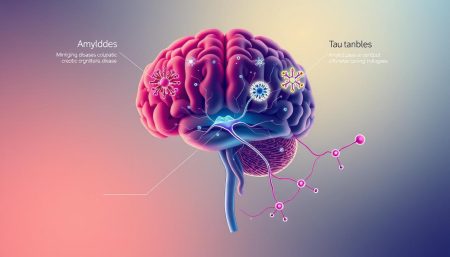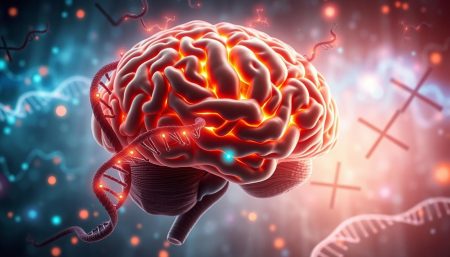Many people wonder if methylfolate helps with brain health and Alzheimer’s prevention. Alzheimer’s disease impacts many lives. It’s important to know how diet and supplements might affect it.
This article explores the link between methylfolate, a Vitamin B9 form, and Alzheimer’s prevention. It’s a complex topic.
Health-conscious adults are searching for ways to keep their brains sharp. The question of does methylfolate help prevent Alzheimer’s disease? is key. It’s not just about science; it’s about people’s hopes for a healthy future.
Let’s look at the evidence with empathy. We all want to find ways to prevent Alzheimer’s and keep our brains healthy.
Key Takeaways
- Investigating methylfolate’s role in Alzheimer’s disease prevention.
- The significance of methylfolate supplementation for brain health.
- Understanding the emotional impact of Alzheimer’s disease and the quest for prevention.
- Evaluating the current scientific discourse on methylfolate’s efficacy.
- Staying abreast of the latest research in cognitive health and disease prevention.
Understanding Methylfolate and Its Role in the Body
Folate, especially methylfolate, is key to our health. This part explains its important roles and how it differs from synthetic forms.
What is Methylfolate?
Methylfolate is the purest form of vitamin B9. It’s used by the body without needing conversion, unlike folic acid. It’s crucial for DNA synthesis, repair, and methylation, a vital biochemical process.
The Biological Importance of Vitamin B9
Vitamin B9, or folate, is vital for cell growth and function. It’s especially important during pregnancy and infancy. Folate helps make red blood cells, preventing anemia and supporting heart health.
Differing Impacts: Methylfolate vs. Folic Acid
Both forms are called vitamin B9, but they affect the body differently. Folic acid needs to be converted to methylfolate, which can be hard for some due to genetics. Methylfolate is directly available, offering more methylfolate benefits. Knowing these differences is key when talking about supplements and food fortification.
The Connection Between Folate and Cognitive Health
Folate supplements play a key role in keeping our brains healthy. They help us think clearly and remember things better. This section explores how folate is important for our brain’s health.
Exploring the Link: Brain Function and Folate Levels
Studies show that folate is linked to how well we think. Folate is a B vitamin that helps make neurotransmitters. These are important for our brain to talk to itself.
Having enough folate stops homocysteine from building up. Too much homocysteine can harm our brain and cause problems like memory loss.
How Folate Deficiency Affects the Aging Brain
As we get older, our brains need more folate. Without enough, homocysteine builds up. This can make it harder to remember things and think quickly.
Taking folate supplements can help keep our brains healthy. It’s especially important for older people.
Folate supplements help our brain’s pathways work better. These pathways are key for memory, processing information, and staying mentally sharp.

| Age Group | Average Folate Levels (ng/mL) | Reported Cognitive Function |
|---|---|---|
| Youth (18-25 years) | 14.8 | High |
| Middle-Aged (40-60 years) | 12.3 | Moderate |
| Senior (60+ years) | 10.2 | Lowered |
The table shows how folate levels drop with age. This affects our brain’s function. Taking folate supplements can help keep our brain healthy as we age.
Insights into Alzheimer’s Disease: Symptoms and Causes
Understanding Alzheimer’s disease is key for early detection and prevention. This section explores early symptoms and risk factors. It offers important insights for those worried about their brain health.
Early Signs of Alzheimer’s Disease
Spotting Alzheimer’s early is crucial for managing it. Early signs include memory loss that affects daily life. It also includes trouble with planning, solving problems, and completing tasks.
Confusion with time or place and issues with speaking or writing are also signs. These early signs are important to watch for.
Understanding the Risk Factors for Alzheimer’s
Several factors increase the risk of Alzheimer’s. These include age, genetics, and lifestyle choices like diet and exercise. Environmental factors and heart health also play a part.
Knowing the early signs and risk factors helps in preventing Alzheimer’s. This knowledge helps individuals, caregivers, and families. It allows them to make lifestyle and healthcare changes.
Methylfolate Benefits on Neural Pathways
Looking into the methylfolate benefits on neural pathways reveals how it boosts cognitive function and brain health. Methylfolate is key in DNA synthesis and repair, vital for neural pathway maintenance and growth. These pathways are essential for handling and processing brain information, affecting our thinking abilities.

Methylfolate also helps turn homocysteine into methionine, an amino acid crucial for brain work. High homocysteine levels in the brain can lead to neurodegenerative diseases. This shows how important methylfolate is for keeping the brain healthy.
| Benefit | Description | Impact on Brain Health |
|---|---|---|
| Synaptic Repair | Promotes the repair of neural pathways to ensure effective neurotransmission. | Enhances memory and learning capabilities. |
| Homocysteine Regulation | Reduces potentially harmful homocysteine levels by converting it into methionine. | Decreases the risk of cognitive decline and brain diseases. |
| Neurotransmitter Synthesis | Essential for the production of serotonin, dopamine, and norepinephrine. | Improves mood, alertness, and cognitive agility. |
Methylfolate is vital for the growth and upkeep of neural pathways. It offers key benefits for cognitive function and brain health. Each part of methylfolate’s role in the brain is crucial for keeping our thinking sharp and healthy. This is why it’s seen as a key nutrient for mental well-being.
Understanding Methylation and Its Implications on Alzheimer’s
Methylation is a key biological process. It helps control how genes work and keeps cells healthy. This section looks at how methylation affects brain health and might help prevent Alzheimer’s.
What is Methylation?
Methylation adds a methyl group to DNA, proteins, or molecules. It affects how cells repair DNA and control genes. This process is vital for cell health and brain function. Problems with methylation are linked to neurodegenerative diseases like Alzheimer’s.
How Methylation Influences Neurological Health
Good methylation keeps the brain healthy by managing homocysteine levels. High homocysteine levels can harm thinking skills. Eating right, especially with B vitamins like B12 and folate, helps with methylation. This supports brain health and Alzheimer’s prevention.
Knowing how methylation affects brain health and Alzheimer’s prevention is key. It shows how diet and lifestyle choices can help prevent Alzheimer’s. Nutritional support for methylation is important for keeping the brain healthy over time.
| Nutrient | Role in Methylation | Benefits for Neurological Health |
|---|---|---|
| Vitamin B12 | Essential cofactor in DNA methylation | Supports nerve health and cognitive functions |
| Folate (B9) | Directly involved in the methylation cycle | Helps decrease homocysteine levels, protecting neural structures |
| Vitamin B6 | Critical for neurotransmitter synthesis | Enhances memory and cognitive clarity |
Exploring methylation and its role in brain health shows how we can prevent Alzheimer’s. Nutritional and physiological improvements can make a big difference.
Scientific Evidence: Does Methylfolate Help Prevent Alzheimer’s?
Many people are looking for ways to prevent Alzheimer’s disease. Methylfolate is one option that has sparked debate. This section looks into if methylfolate can really help lower the risk of dementia linked to Alzheimer’s.
Methylfolate plays a key role in brain health by supporting methylation processes. These processes are important for thinking and fixing brain cells. Scientific evidence suggests that enough methylfolate might lower the risk of brain diseases. But, how much it can prevent Alzheimer’s is still being studied.

Studies are looking at how methylfolate affects homocysteine levels. High homocysteine levels are linked to dementia risk. Methylfolate might help by changing homocysteine into methionine, which could prevent dementia.
| Study | Focus | Key Findings |
|---|---|---|
| 2021 Neurological Health Journal | Methylfolate’s effect on homocysteine | Reduction in homocysteine levels linked to improved cognitive function |
| 2022 Aging & Brain Research | Long-term effects of methylfolate supplementation | No significant impact on Alzheimer’s progression in high-risk groups |
| 2020 Dementia Prevention Initiative | Comparison of folate forms | Methylfolate showed more potent effects on mental agility than folic acid |
The table shows recent research on scientific evidence about does methylfolate help prevent Alzheimer’s disease? Some studies hint at benefits, but others say we should be careful. More research is needed.
In summary, early research looks promising, but we need more studies to be sure. Experts say a healthy diet, exercise, and brain training are key to lowering dementia risk.
Exploring How Methylfolate Interacts with Brain Health
Methylfolate is a form of folate, a B-vitamin essential for brain health. It’s known for its methylfolate benefits. This nutrient helps with mental clarity, memory, and overall brain health.
Methylfolate and Homocysteine Reduction
Methylfolate helps control homocysteine levels in the blood. High homocysteine levels can lead to brain diseases like dementia and Alzheimer’s. It converts homocysteine into methionine, supporting brain functions and reducing brain health risks.
The Role of Methylfolate in Neurotransmitter Synthesis
Methylfolate is key in making neurotransmitters like serotonin and dopamine. These neurotransmitters are important for mood and thinking. Methylfolate helps keep these neurotransmitters in balance, supporting mental health and preventing cognitive decline.
Studies show methylfolate fights brain aging, improving brain health and preventing memory loss. It’s a good choice for managing age-related brain decline. Keeping folate levels up through diet or supplements can help maintain brain health and quality of life as we age.
Alzheimer’s Prevention Strategies and Lifestyle Choices
The rise in dementia worldwide has led to a focus on Alzheimer’s prevention. Lifestyle choices are key, improving health and fighting cognitive decline. This section looks at how daily habits can lower Alzheimer’s risk.
Intentional lifestyle choices are crucial in fighting Alzheimer’s. Here are simple steps to add to your daily routine:
- Regular physical exercise to improve both cardiovascular and brain health.
- A balanced diet rich in fruits, vegetables, and omega-3 fatty acids, crucial for brain function.
- Cognitive training and engaging in mentally stimulating activities to enhance brain resilience.
- Consistent sleep patterns and adequate sleep duration to help brain detoxification processes.
- Stress management techniques such as meditation or yoga, which benefit overall mental health.
These lifestyle changes are key to reducing dementia risk and improving overall health. Here’s a table to show how these choices can help:
| Lifestyle Factor | Impact on Alzheimer’s Prevention | Related Studies |
|---|---|---|
| Physical Exercise | Reduces brain atrophy and improves vascular health | Several epidemiological studies have shown a link between regular exercise and lower dementia risk |
| Nutrient-Rich Diet | Provides antioxidants that protect neurons | Research indicates Mediterranean diets are associated with slower cognitive decline |
| Mental Engagement | Enhances neuroplasticity and cognitive reserve | Studies suggest that activities like puzzles, reading, and arts can delay the onset of Alzheimer’s symptoms |
| Sleep Quality | Facilitates the clearance of brain toxins | Research highlights poor sleep as a significant risk factor for cognitive impairment |
| Stress Management | Lowers levels of stress hormones, which can damage the brain over time | Empirical evidence supports the protective effects of stress reduction on brain health |
Choosing these lifestyle choices is vital for preventing Alzheimer’s and living well. This holistic approach can greatly reduce dementia risk and support brain health for years to come.
Comparing Folate Supplements and Natural Dietary Sources
When looking at vitamin B9 and cognitive function, it’s key to compare folate supplements and dietary sources of folate. Knowing the good and bad of each helps people make smart health choices.
Folate-Rich Foods for Cognitive Function
Eating foods naturally rich in folate is often the best choice. These include leafy greens, legumes, seeds, and liver. They give you vitamin B9 and other nutrients that help your brain and body.
Choosing the Right Folate Supplement
If you can’t get enough folate from food, supplements are a good option. They’re great for those with special diets or trouble absorbing nutrients. Pick a supplement that works well with your body to help your brain.
| Source | Folate Content | Additional Benefits |
|---|---|---|
| Spinach (1 cup) | 263 mcg | Rich in antioxidants, vitamins A and C |
| Lentils (1 cup cooked) | 358 mcg | High in protein and fiber |
| Folate Supplement (per pill) | 400 mcg | Consistent dose; easy to consume |
Getting folate from both food and supplements can really help your brain. The important thing is to make sure you get enough vitamin B9.
Debates Around Methylfolate as a Preventive Measure Against Dementia
The medical world is divided on methylfolate’s role in stopping Alzheimer’s disease. This debate shows how complex dementia risk and prevention are. We aim to give a full view of this complex topic.
Many scientists ask if methylfolate can prevent Alzheimer’s. Studies have shown both yes and no answers. Here, we present both sides to give a fair view.
| Argument For | Argument Against |
|---|---|
| Methylfolate may lower homocysteine levels, a known risk factor for Alzheimer’s development. | Some research indicates no significant impact on dementia risk reduction when homocysteine levels are controlled. |
| Enhances methylation processes crucial for maintaining neuronal health and function. | Long-term benefits of methylfolate supplementation in preventing Alzheimer’s remain unclear and under-explored. |
| Can potentially improve cerebral blood flow, fostering a healthier brain environment. | Effects may vary significantly across different genetic profiles, limiting its universal applicability. |
The methylfolate debates highlight the need for tailored medical care. As research continues, it’s important for both people and doctors to carefully look at new findings.
- In-depth, long-term clinical trials are needed.
- The impact of genetic variations on methylfolate’s effectiveness should be further studied.
- Public and professional awareness on the nuances of folate supplementation should be enhanced.

Dosage and Safety: What You Need to Know About Methylfolate
Knowing the right methylfolate dosage is key for cognitive health and safety. This part gives you important info on the best dosage and possible side effects. It helps you make smart choices about your health supplements.
Recommended Dosage for Cognitive Health
The best methylfolate dose for brain health varies by person and doctor’s advice. Adults usually need 400 to 800 micrograms a day. This supports brain function and clear thinking.
Potential Side Effects of Excess Methylfolate Intake
Too much methylfolate can cause side effects. These might include trouble sleeping, feeling irritable, and stomach issues. Sticking to the suggested methylfolate dosage helps avoid these problems.
- Sleep issues can mess up your natural sleep cycle, hurting brain function.
- Irritability and mood swings can impact daily life and mental well-being.
- Stomach problems might make you stop using it, losing out on brain health benefits.
Teaching the right dosage and talking about side effects shows our dedication to safety. We aim to educate and support those who care about their health.
Personalized Medicine: Genetic Factors in Folate Metabolism
The era of personalized medicine is changing healthcare. It focuses on each person’s unique genetic makeup for better care. In folate metabolism, genetic factors play a big role in how we use folate. Knowing these factors helps tailor methylfolate supplementation for each person’s health needs.

Genetic factors like MTHFR gene variations affect how we convert folic acid to methylfolate. This is key for DNA repair and other bodily functions. Knowing your genetic profile can lead to better folate metabolism and health outcomes through personalized medicine.
The Role of Genetics in Folate Utilization
Research, like a review at NCBI, shows genetics’ big role in folate use. Knowing how genetics affect folate use helps create better methylfolate supplementation plans.
Methylfolate Supplementation for Specific Genetic Profiles
People with certain genetic mutations might not get folate benefits from standard supplements. Tailored methylfolate supplementation helps. It ensures the body gets the folate it needs right away, boosting health.
Using personalized medicine helps spot genetic factors that slow down folate metabolism. This leads to nutritional support that fits each person’s genetic makeup. It makes methylfolate supplementation a key part of personalized healthcare.
Potential Interactions and Contraindications with Methylfolate
Adding supplements to boost brain health is a big step. It’s key to know about methylfolate interactions and contraindications. This part talks about adding methylfolate to your routine, especially if you’re on meds or have health issues.
Methylfolate is a special form of vitamin B9. It helps with DNA repair and making neurotransmitters, which are good for the brain. But, it can interact with other meds in ways that might change how well it works or how safe it is.
- Interaction with Antiepileptic Drugs: Drugs like phenytoin and carbamazepine can mess with folate levels. This might make methylfolate less effective.
- Impact on Mood Stabilizers: If you take meds for bipolar disorder, watch out. Methylfolate might make these meds work too well.
- Contraindications with Chemotherapy: If you’re on chemo, especially methotrexate, don’t take too much methylfolate without a doctor’s okay.
Also, there are contraindications to think about. Methylfolate is usually safe, but there are some cases where you should be careful:
- People allergic to folate products should stay away from methylfolate.
- Those with cancer should talk to their doctor first. Too much folate might affect cancer cells.
- People with mood disorders should start methylfolate slowly under a doctor’s watch. It can change how you feel.
Before starting or changing your methylfolate, always talk to a healthcare professional. This is especially true to avoid any methylfolate interactions. Tailoring your supplement to your health and meds is key to getting the most benefits without risks.
Always be careful and get advice from a doctor before taking methylfolate. This way, it will help your health without causing harm.
Conclusion
Our journey to find out if does methylfolate help prevent Alzheimer’s disease has been deep and detailed. We’ve looked at the science behind methylfolate, a key form of vitamin B9. It plays a big role in keeping our brains healthy and sharp.
This compound helps protect our brains by supporting important chemical reactions. It also helps control levels of homocysteine, which is good for our brain health. But, we still need more research to know for sure if it prevents Alzheimer’s.
Even though we don’t know everything yet, early studies are promising. They show that methylfolate might help keep our brains working well. Eating foods rich in folate or taking folate supplements could help those at risk of losing their memory.
But, it’s important to remember that everyone is different. What works for one person might not work for another. So, it’s key to talk to a doctor before starting any supplements, including methylfolate.
We want to help people make smart choices about their health, especially when it comes to cancer. Knowing the facts and talking to doctors can help us keep our brains healthy. We should all keep up with the latest research and talk to our doctors about how to stay sharp.
FAQ
Q: Can Methylfolate Help Prevent Alzheimer’s Disease?
A: Research is ongoing, but some studies hint that methylfolate might help. It supports brain health and could lower the risk of Alzheimer’s by improving methylation and reducing homocysteine levels. But, we can’t say for sure yet.
Q: What is Methylfolate?
A: Methylfolate is the active form of Vitamin B9. It’s key for DNA repair, cell growth, and methylation. Unlike folic acid, it doesn’t need conversion by the body.
Q: How Does Folate Deficiency Affect the Aging Brain?
A: Folate deficiency can raise homocysteine levels. This is linked to heart and brain diseases. In older adults, it can cause memory loss and dementia risk.
Q: What Are Some Early Signs of Alzheimer’s Disease?
A: Early signs include memory loss and trouble with planning. You might also struggle with familiar tasks, get confused, or feel mood changes.
Q: How Might Methylfolate Benefit Neural Pathways?
A: Methylfolate helps by donating methyl groups. This supports the making of neurotransmitters like serotonin and dopamine. These are key for brain function and mood.
Q: What is Methylation?
A: Methylation is a process where a methyl group is added to amino acids and DNA. It affects immune response, DNA repair, and gene expression.
Q: Is There Scientific Evidence to Support the Use of Methylfolate in Alzheimer’s Prevention?
A: Some studies suggest methylfolate might reduce cognitive decline risk. But, the evidence is not strong enough yet. More research is needed.
Q: What Role Does Methylfolate Play in Neurotransmitter Synthesis?
A: Methylfolate helps make neurotransmitters like serotonin and dopamine. These are important for mood, thinking, and brain function.
Q: Can Lifestyle Choices Affect Alzheimer’s Prevention?
A: Yes, choices like a balanced diet and exercise can help. So can staying mentally active and social.
Q: How Do Folate-Rich Foods Compare to Folate Supplements for Cognitive Function?
A: Both foods and supplements support brain health. Foods offer more nutrients and fiber. Supplements, like methylfolate, are more concentrated and bioavailable.
Q: What Are the Ongoing Debates Around Methylfolate as a Preventive Measure Against Dementia?
A: Debates include methylfolate’s effectiveness, dosage, and potential risks. Genetic factors also play a role in how it’s used by the body.
Q: What is the Recommended Dosage for Methylfolate to Support Cognitive Health?
A: Dosage varies based on health, genetics, and folate levels. It’s best to follow healthcare advice, which might be 400 micrograms to 1 milligram daily.
Q: Are There Potential Side Effects of Excessive Methylfolate Intake?
A: Too much methylfolate can cause insomnia, irritability, and stomach issues. It might also hide vitamin B12 deficiency. Always follow recommended doses and consult a doctor.
Q: How Do Genetic Factors Influence Folate Utilization?
A: Genes like MTHFR mutations can affect folate conversion to methylfolate. This can change individual needs for supplementation.
Q: Are There Any Medications That Interact with Methylfolate?
A: Methylfolate can interact with drugs like antiepileptics and methotrexate. Always check with a healthcare provider to avoid interactions.


















